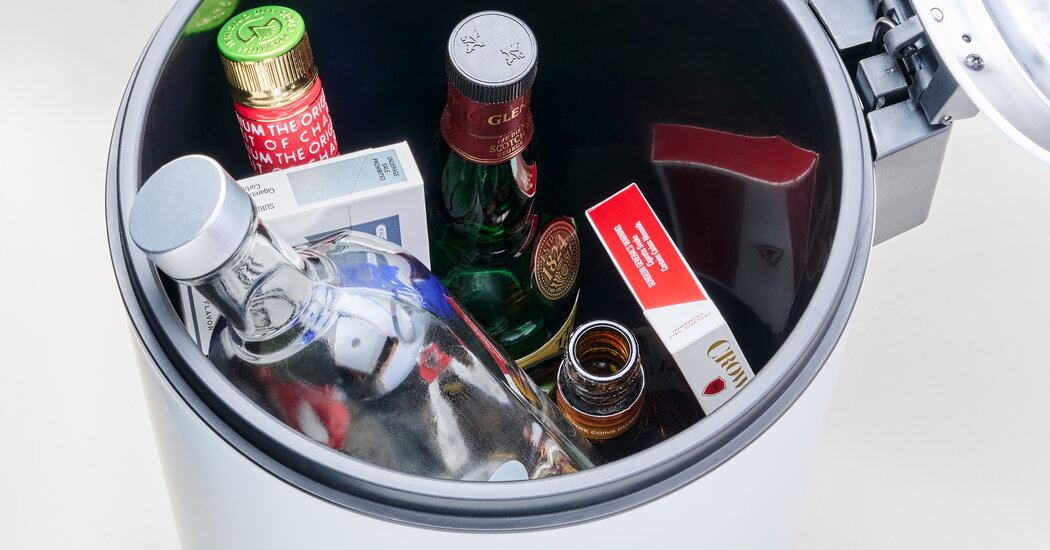Q: Several people in my family have had cancer, and I’m terrified of getting it, too. How can I reduce my odds?
It’s true that having a family history of cancer raises your risk of developing the disease. But getting sick is not inevitable.
In a recent study, researchers used 2019 data on cancer cases among U.S. adults ages 30 and older, and they estimated that about 40 percent of cases were caused by lifestyle factors you can change.
“That’s actually good news,” said Dr. Farhad Islami, the lead author of the study and senior scientific director of cancer disparity research at the American Cancer Society. This means you may be able to lower your risk by making better decisions for your health, he said.
Here are a few steps you can take.
Gather specifics about your family history.
People with a family history of cancer are more likely to inherit genetic changes that have been passed down from their parents, which increase their cancer risk.
This is particularly true if first- or second-degree relatives have had the disease, said Dr. Amy Comander, medical director of the Mass General Cancer Center in Waltham, Mass. So gather information about your parents, siblings and children, as well as your grandparents, grandchildren, uncles, aunts, nieces, nephews and half-siblings.
What age were they diagnosed? The younger they were — particularly if they were under 50 — the more likely their cases were caused by genetics, Dr. Comander said.
What type of cancer did they have? Many cancers can result from genetic changes that were passed down from your parents, and the most common ones include breast, ovarian and colorectal, experts said. If several people in your family had those cancers, it can be a sign that it was caused by their genetics, Dr. Comander said.
And look for patterns, she added. It’s one thing if your uncle developed lung cancer after decades of smoking cigarettes, for instance, but it’s another if several nonsmoking relatives developed the disease early in life.
Try genetic testing.
If your doctor deems it necessary, you may be referred to a genetic specialist who will check for gene changes that increase your risk, said Dr. Syed Ahmad, the interim director of the University of Cincinnati Cancer Center.
“A lot of times, patients are scared to go to a genetic counselor” because of “fear of the unknown,” Dr. Ahmad said. But having gene variants doesn’t necessarily guarantee that you’ll develop a disease, he added.
If several of your family members have had breast cancer, a specialist might test for mutations in the BRCA1 and BRCA2 genes, Dr. Ahmad said. (More than 60 percent of women with specific changes in these genes will develop the disease.) If multiple relatives have had colon cancer, you might be tested for Lynch syndrome, a inheritable genetic conditionthat can increase risk by up to 80 percent for men and 60 percent for women. There are also tests that assess for a wide range of genetic changes at once.
If you indeed inherited genetic changes that raise your risk, you’ll probably be referred to a specialist who can recommend earlier and more frequent cancer screenings than what’s suggested for the average person, Dr. Comander said.
“You don’t want to miss that chance to find something early that could be curable,” said Dr. Judy Garber, chief of the division of cancer genetics and prevention at Dana-Farber Cancer Institute in Boston, Mass.
Your doctor may also suggest optional preventive procedures, Dr. Garber added. For instance, a patient with a high risk of developing breast cancer might consider a mastectomy.
Make lifestyle changes.
Genetic predisposition accounts for only 10 percent of all cancer cases at most, Dr. Garber said. And some research suggests that the disease is often caused by random errors in DNA replication inside cells, which means people “should never blame themselves for getting cancer,” Dr. Comander said. However, there are things you can do to reduce your risk.
Don’t smoke. Decades of research suggest that smoking tobacco raises your risk of cancer practically everywhere in the body, especially in the lungs. Your odds increase the longer you smoke, but it’s never too late to quit, Dr. Islami said. A 2021 study found that smoking cessation could substantially reverse risk.
Maintain a healthy weight. Those who are overweight or obese have higher odds of developing at least 13 types of cancer.
Following a diet rich in fruits, vegetables, whole grains and beans, while limiting consumption of red and processed meats, is associated with lower risk. So is exercising, which can reduce risk of cancer even if it doesn’t lead to weight loss, said Alison Klein, a professor of oncology at the Johns Hopkins School of Medicine.
Limit drinking. The U.S. surgeon general announced this year that even light alcohol consumption could raise your risk of several cancers. No amount of drinking is considered safe. But women should generally have no more than one drink per day, while men should limit themselves to two drinks or less, though these guidelines are up for debate.
“The more healthy choices you make, the better,” Dr. Klein said.










